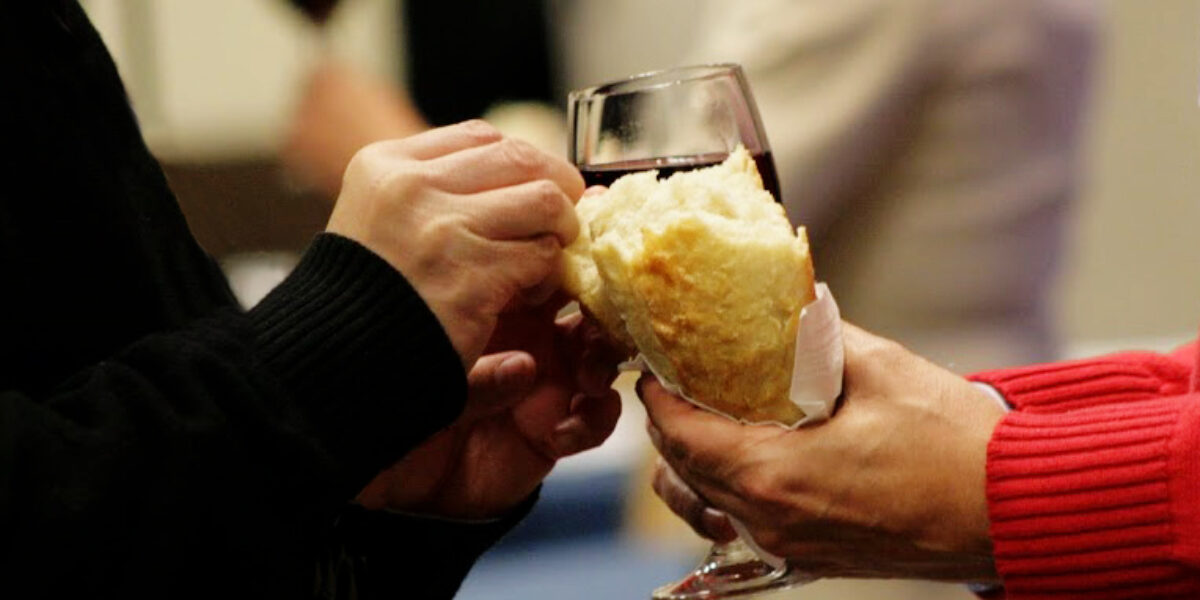Editor’s Note: Mennonite Mission Network invited Melody Pannell to share a reflection on World Communion Sunday, Oct. 3. She dovetails her thoughts with 1 Corinthians 11:17-22 (NRSV):
17 Now in the following instructions I do not commend you, because when you come together it is not for the better but for the worse. 18 For, to begin with, when you come together as a church, I hear that there are divisions among you; and to some extent I believe it. 19 Indeed, there have to be factions among you, for only so will it become clear who among you are genuine. 20 When you come together, it is not really to eat the Lord’s supper. 21 For when the time comes to eat, each of you goes ahead with your own supper, and one goes hungry and another becomes drunk. 22 What! Do you not have homes to eat and drink in? Or do you show contempt for the church of God and humiliate those who have nothing? What should I say to you? Should I commend you? In this matter I do not commend you!
As a child growing up at Seventh Avenue Mennonite Church in Harlem, New York City, New York, one of my favorite songs to sing together as a congregation was "We Are One in the Spirit." This song was not in our traditional Mennonite hymnal book. It was considered a contemporary hymn and was written in the 1960’s by Peter Raymond Scholtes (1938-2009). He was a parish priest and choir director, who created the song for an ecumenical event.
Experiencing many different cultures and aspects of social identities within my church and community, I developed a deep appreciation for the lyrics of this unifying song.
We are one in the Spirit, we are one in the Lord;
We are one in the Spirit, we are one in the Lord;
And we pray that all unity may one day be restored.
And they’ll know we are Christians by our love, by our love,
And, they’ll know we are Christians by our love. …
We will work with each other, we will work side by side.
We will work with each other, we will work side by side.
And we’ll guard each one’s dignity
and save each one’s pride.
And they’ll know we are Christians by our love, by our love,
And, they’ll know we are Christians by our love.
We often sang this song after taking communion, gently swaying back and forth in unison. Sometimes, we held hands, while affirming the dignity of one another, as we gazed upon the uniqueness of each person in the circle.
In my childhood faith, I imagined that this song of solidarity not only encompassed our multicultural congregation, it also embraced the community beyond the walls of the church. This powerful love, representing the broken body of Jesus Christ, poured out into the streets of Harlem and reached all who’ve historically been assigned to the world’s margins. This spirit of unity seemed to surpass our differences and called us to embrace higher ways of engaging with one another. This was reflected in how we treated our families, defined our neighbors and entertained the stranger. The broken body of Christ was for everyone. There was solidarity in the Eucharist.
As I reflect on the recent celebration of World Communion Sunday, as an adult, I wonder: Where is the call to embody this oneness in Christ, through the breaking of his body and the drinking of his blood? Have we, instead, embraced our polarizations and settled into our segregations? What would it look like in the here and now if the church evaluated our divisions, embodied the Eucharist and engaged in a practice of solidarity?
Womanist scholar M. Shawn Copeland writes about being the body of Christ in her work, titled Enfleshing Freedom: Body, Race and Being:
"As his body, we embrace with hope and love those who, in their bodies, are despised and marginalized, even as we embrace with love and forgiveness those whose sin spawns the conditions for the suffering and oppression of others. … Eucharistic solidarity opposes all intentionally divisive segregation of bodies on the specious grounds of preference for race or gender or sexual orientation or culture. Eucharistic celebration forms our social imagination, transforms our values, and transforms the meaning of our being human, of embodying Christ. Eucharistic solidarity teaches us to imagine, to hope for, and to create new possibilities. His Eucharistic banquet re-orders us, re-members us, restores us, and makes us one."
As we continue to give thanks and partake in the sacred sacrament of communion in our local churches, let us embody the love and sacrifice of Christ within our relationships that are broken and need healing. Let us embody what it means to be one in the spirit. Let us be unified and renew our commitment to work with one another, side by side, guarding each person’s dignity and saving each person’s pride.
For I still believe that the world will know that we are Christians by our love, and our love can still transform the world.





